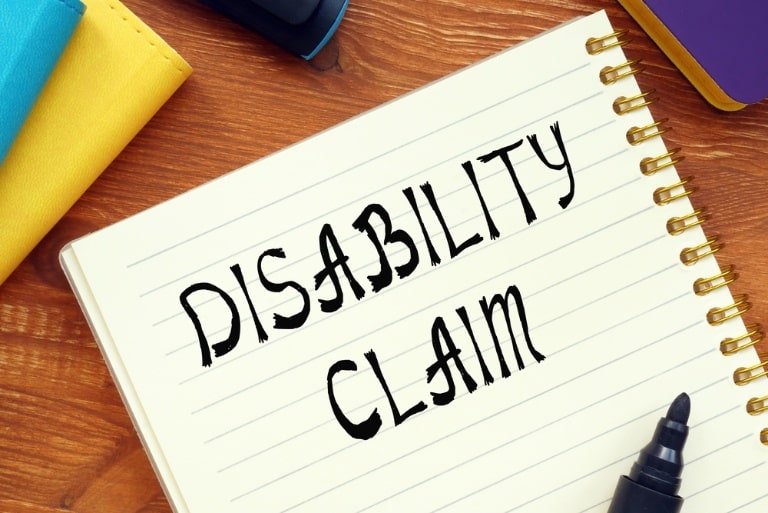Common Challenges in Long-Term Disability Claims and How Legal Help Makes a Difference

Navigating the long-term disability process can be challenging for claimants. It involves different hurdles, so understanding how legal support can make a difference is essential for a positive outcome. In this post, we discuss some of the common barriers claimants face and the value of receiving advice from experienced lawyers in these circumstances.
Understanding Long-Term Disability
Long-term disability insurance is a type of federal insurance that provides financial support to individuals who cannot perform their work due to a disability or medical condition. This kind of support is essential; however, access to it is complex.
Claimants may have to overcome mile-high policy or extremely onerous medical evidence requirements. This is where the help of a professional, like a Virginia long-term disability lawyer, becomes invaluable. Anyone considering a claim should be aware of these potential pitfalls and understand that legal expertise can help them navigate the system more effectively.
Common Challenges in Claims
Complex Policy Language
Insurance plans are difficult to read and understand. The language contains legalese and technical jargon that can make it impossible for the claimant to know their rights and duties. Confusion on these terms can result in errors during the application process, which can affect the success of the claim.
Strict Medical Evidence Requirements
The long-term disability insurance adjusters need detailed medical records to confirm claims. Compiling this proof may be intimidating, with comprehensive studies from professional resources. If the documentation has any holes or is not in sync, the claims will be denied or delayed.
Pre-Existing Condition Clauses
Many policies already have clauses in place around pre-existing conditions, and this can sometimes make claims challenging. If an insurer decides the illness or injury existed before a policy went into effect, it could deny benefits. This requirement that the condition not be related to the current disability is often a substantial hurdle to overcome.
Timely Filing
Meeting filing deadlines is extremely important in a disability claim. If a claim is submitted past these deadlines, it will be denied without consideration, no matter how valid the claim may be. To maintain your eligibility, you must follow the timelines and submit your paperwork on time.
Benefit Denials and Appeals
It is possible for a claim to be denied even if all the initial obligations seem to have been fulfilled. Understanding why you are being denied and how to navigate the appeals process takes a lot of knowledge and perseverance. Without mentoring, this phase can be extremely daunting.
The Role of Legal Assistance
Disability claims lawyers assist with the legal aspect. They have the experience to greatly increase the odds of a successful result. These contributions come in the form of:
Interpreting Policy Terms
Legal experts help demystify complex policy language and ensure claimants understand what their policies cover. They clarify the terminology to prevent misunderstandings and mistakes by the applicants.
Compiling Medical Documentation
Lawyers also help gather medical records. They coordinate with healthcare providers to ensure that all the documentation needed is complete and correct and find gaps that can prevent the claim from being approved.
Addressing Pre-Existing Conditions
Lawyers know how to maneuver around clauses relating to preexisting conditions. Those show that the claimant’s current disability has nothing to do with any earlier medical problems, making the case for benefits stronger.
Meeting Deadlines
Lawyers ensure that all documents are filed within the time limits provided. They handle all timelines, ensuring deadlines are not missed, which may jeopardize claims.
Handling Denials and Appeals
In case of a claim denial, well-versed legal professionals can help navigate you through the appeal process. A PIP appeal service will examine the grounds for a denial, obtain fresh proof as necessary, and advocate for the claimant in hearings, immensely increasing the possibility of a favorable ruling.
Choosing the Right Legal Support
Choosing the right legal help is key. You want to find people with skills and experience with disability claims. You can do a little research on their track record, and knowing how they operate will help with deciding. Clear communication should be taken into account because reputable attorneys will keep the claimants informed on the whole process.
Conclusion
Long-term disability claims are fraught with challenges, but identifying the hurdles and having legal support can help. Lawyers offer specialized knowledge, perspective, and guidance, all of which play a significant role in improving the odds of a favorable outcome. They help break down complicated policy language, compile essential medical documentation, and handle appeals for claimants.




